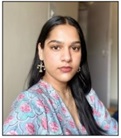Justice, Protection, and Government of the People: A Two-Year Research and Orientation Programme on Protection and Democracy in a Post-COVID World (2021-2023)
Media Segments
The State of India’s Environment Report 2022 (Down To Earth, 2022) predicted that nearly 143 million people, a little more than the population of Maharashtra, will be displaced due to the massive climate disasters in the next thirty years. The displacement from homeland to some other place make a deep impact on the social and psychological life of a migrant. Difference in the socio-economic status makes it more complicated. The journey from their homeland, violation of welfare policies, reaction from the host state make the situation adverse for the rural poor and increase the level of vulnerability. Reporting on these issues is a challenging task for media practitioners; additionally, journalists from marginal and border regions face technical and infrastructural challenges during reporting on migrants. It is all the more difficult to report on climate change given the fact that it becomes difficult for the general viewers and readers to understand the rigors of scientific and technical data.
Incidences of climate related disasters are on the rise and so do cases of migration and displacement which manifest in either shock displacement or form part of gradual outmigration practices. In case of the latter, people move out of their native places leaving behind their traditional occupations. Agrarian communities, fishing communities, riverine and coastal communities, people living in mountainous terrains, etc., are the worst affected in such cases. Reporting such cases becomes all the more difficult because of the chain of events that precedes the process of displacement.
The primary challenge while reporting climate change and climate induced displacements is basically ‘getting the message across’ to the general public. This necessitates the need to engage in conversations about reporting climate change and related migration. The Media Workshop aims to bring together practitioners from diverse areas of Media so that they can discuss and throw light on how they report on such an intense issue, the difficulties they face and the ingenious ways they adopt in order to get the reportage done. This Workshop is being organised in congruence with CRG’s previous endeavours on media studies and practices and is a part of the institute’s continued focus on Migration Studies.
Media Fellows
| Researchers | Topics | Abstracts / Full Paper | |
|
|
Riya Singh Rathore is a political science enthusiast passionate about gender, refugee rights, and decolonisation. She works with the Social Policy Research Foundation as the Editorial Manager in New Delhi, India. Her best-known research covered the series of mysterious fires in Rohingya refugee camps. In the process of covering the incidents, she became involved in volunteering with refugees and advocating for them. Consequently, her topic of study with the Calcutta Research Group investigated how to make refugee-host community relationships better. Previously, she worked as a research intern at the Irish Parliament and with Amnesty International. Her coverage and research have been published in Economic and Political Weekly, The Diplomat, The Wire, The Mint, Hindu Business Line, and Business Insider. |
KNOW THY NEIGHBOUR: HOW STRENGTHENING THE HOST-REFUGEE RELATIONSHIP CAN AID REFUGEE PROTECTION |
|
|
|
Ritwika Mitra is an independent journalist. She works at the intersection of climate crisis, gender, caste and human rights. Her bylines have appeared in The Fuller Project, Foreign Policy, Waging Nonviolence, Open Democracy, The Polis Project, The Wire, Fifty Two, Article 14 and Behan Box. Previous to her freelance career, she has worked with The Indian Express, The New Indian Express, Deccan Herald and BBC. She received grants from the MSF, the Columbia Journalism School’s Dart Centre for Journalism and Trauma and the Pulitzer Crisis Centre. She is a recipient of the Lorenzo Natali 2022 prize for her story on climate crisis in the Sundarbans and its link with increased trafficking. She was awarded the Chevening Scholarship in 2016 to pursue a master’s degree in International Relations at the University of Birmingham. |
Women bear a disproportionate burden of distress migration |
|
|
|
Farhana Ahmed (b. 1977) is a journalist, author, film critic, film maker, social activist and environmentalist connecting local with global from Assam, India. She specializes in reporting trafficking of persons, modern day slavery, wild life trafficking, climate change and investigative crime journalism. She has made two documentaries on women ex-cadres of an insurgent group from Assam and on human trafficking. Additionally Farhana works for rural women engaged in traditional livelihood activities. Her stories have appeared in The Wire, The Third Pole, Carbon Copy etc. She has been honoured with seven media awards in national level, three film awards besides various recognitions. She held various public posts appointed by state and was member to some important committees. Farhana is also a public speaker and attended number of key speaking assignments. |
State of Migrant Workers from Assam in Kerala |
|
Events / Public Lectures / Webinars
Disseminations / Resources / Important Links



